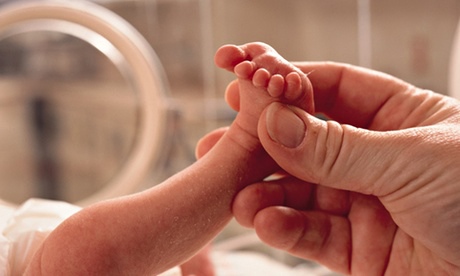Babies born prematurely in Iceland and whose mothers are unable to breastfeed are to benefit from Danish milk banks

Babies born prematurely in Iceland may now be given Danish breast milk following a move by the country’s leading neonatal unit. Landspítali National University Hospital in Reykjavik has decided to import supplies from Denmark for premature babies whose mothers are unable to breastfeed.
“When babies are born early, many of their organs are not fully developed and this puts them at higher risk for a number of diseases,” says Thordur Thorkelsson, director of neonatology at Landspitali National University Hospital. The active enzymes found in breast milk have been shown to help the underdeveloped gut mature and protect newborns from infection.
But some mothers of premature babies are unable to breastfeed. “They may be sick or have pre-eclampsia and this can interfere with their ability to feed their child,” says Thorkelsson.
Where a mother’s milk isn’t available, the World Health Organisation recommends breast milk from so-called milk banks. These have been growing in popularity worldwide since the first was established in Austria in 1909. Today, Iceland is the only Nordic nation without one.
“Economically, it’s not feasible to have our own breast milk bank in Iceland,” says Thorkelsson: “We’re a small place and have only about 250 premature babies born each year. The prevalence of breastfeeding in Iceland is high, so we need milk only for the babies of those few mothers who can’t feed their newborns.”
Hvidovre Hospital, near Copenhagen, collects 5,000 litres of breast milk a year and new mothers who express at least 200ml of milk a day can contribute. After a blood test and screening, non-smokers can sell their surplus milk to the bank for 200DK (around £21) per litre.
“It then gets frozen at -18C and flown over to us,” says Thorkelsson. “The frozen milk can be stored for up to six months, but we can also get more pretty quickly if we need to – I could place an order today and it could arrive tomorrow. Even though it’s expensive for us to import , it’s cheaper than having our own banks and running our own screening.”
